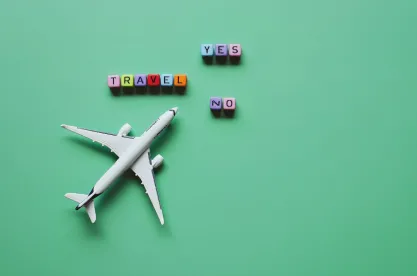International travelers subject to the CDC travel restrictions will soon be able to resume travel to the U.S. without applying for an exemption. The current travel restrictions apply to certain travelers from China, Iran, the European Schengen Area (most of the EU), the United Kingdom, Republic of Ireland, Brazil, South Africa, and India, and prohibit a foreign national who does not qualify for an exemption from traveling to the U.S. if they have been physically present in one of the designated countries 14 days in advance of their arrival to the U.S. These restrictions will be rescinded and replaced by new travel restrictions based on individual vaccination status:
-
Beginning in early November 2021, all adult foreign national travelers will be required to prove that they have been fully vaccinated against COVID-19 AND provide proof of a negative COVID-19 test within 3 days of boarding a flight to the United States.
-
U.S. citizens and residents who are not fully vaccinated will be required to provide proof of a negative COVID-19 test within 1 day of boarding a flight to the United States AND provide proof of purchase of a viral test to be taken after arrival to the United States.
-
Airlines will be required to collect comprehensive contact information for every passenger arriving in the United States, and provide that information to the CDC on request, and will be required to contact travelers who have been exposed to COVID-19.
-
Limited exceptions will be provided for children; COVID-19 vaccine clinical trial participants AND humanitarian exceptions for those traveling for an important reason and who do not have access to timely vaccination BUT those granted an exception must agree to get vaccinated on arrival to the U.S.
-
CDC will outline which vaccines will be accepted.
-
Department of Homeland Security, Federal Aviation Administration and Department of State will develop directives and the implementation plan for implementing the changes to international travel restrictions.
This is welcome news for international travelers from the 39 countries affected by the travel restriction, and who have not been able to qualify for an exemption. Under the current travel restrictions, U.S. citizens, lawful permanent residents and their spouses are exempt, as well as parents of U.S. citizen minor children (under age 21). Otherwise, affected travelers must apply for a National Interest Exemption through a U.S. Consulate abroad.






 />i
/>i

